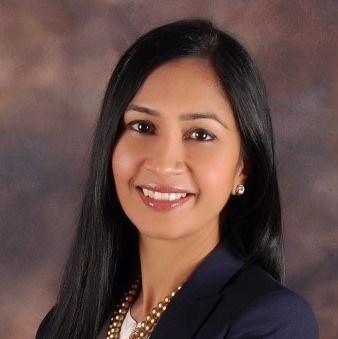
Small and emerging biopharma companies are working to develop highly innovative treatments for the world’s most difficult diseases, but they often face substantial challenges, or even failure, when approaching a regulatory milestone. Ahead of our upcoming Bayer-MassBio Center for Regulatory Excellence event, we spoke with Chitkala Kalidas, Vice President and Global Head of Regulatory Affairs for Oncology and In Vitro Diagnostics, Bayer to learn more about the regulatory landscape unique to oncology drug development in the U.S.
What are some of the challenges small and emerging oncology companies face in their path to drug approval in the US?
Developing a regulatory strategy that is tailored to the drug development program can enable earlier patient access to the drug with an optimal label that highlights the benefit-risk considerations of the drug and is a key competitive advantage for every company. Navigating the complex regulatory landscape can be an enormous challenge. The Food and Drug Administration (FDA) is the Regulatory Agency in the U.S. that is responsible for drug approvals. A key focus of the FDA is safeguarding public health and ensuring that a new drug is safe and efficacious for its intended use in the United States. Before approaching the FDA for the first time, emerging companies must have a well-defined regulatory strategy that is aligned with the characteristics of the new drug, the target indication, dosing regimen, the clinical development plan, and the patient selection strategy, including the use of biomarkers/diagnostics, where applicable.
The regulatory strategy must be compliant with regulatory requirements and take applicable guidelines into account. In addition, it needs strong alignment with internal research and developmental functions as well as manufacturing, commercial, and market access functions. Emerging oncology companies are advised to actively engage the FDA as early on as possible to discuss the appropriate path to regulatory approval, including preclinical and clinical plans to avoid unnecessary delays, and to establish ongoing communications with the FDA to ensure alignment with the Agency throughout the drug development process.
What are some of the best practices or recommendations you’d share with these companies?
We recommend companies seek regulatory guidance early on from a regulatory consultant who has a deep understanding of the landscape as well as a strong track record of successful interactions with regulatory agencies. It is also advisable to spend time obtaining in-house knowledge of regulatory guidelines, precedence, and best practices. We also recommend participating in educational opportunities in Regulatory Affairs such as specific courses offered to startups and entrepreneurs by universities.
At the Bayer/MassBio Center for Regulatory Excellence, we offer think tank sessions and selected opportunities for mentoring. Drug development is global. While many companies begin with one regulatory agency such as the FDA in the United States, they will have to work with other agencies in other countries if they decide to produce and distribute their products globally. Companies will have to navigate those regulations as well, and rules and regulations can dramatically differ from one country to another.
How can mentorship from industry leaders help entrepreneurs navigate the regulatory landscape?
Industry leaders who have navigated through regulatory submissions and interactions with Health Authorities/regulatory Agencies can offer insightful perspectives to startup companies. Mentors from global companies such as Bayer can share their experiences working with different regulatory agencies and on regulatory requirements around the world, including guidance on how to work through potential challenges and leverage opportunities like expedited regulatory pathways.
How does Bayer support emerging oncology companies to optimize the chances of regulatory success?
The Center for Regulatory Excellence is a first-of-its-kind forum initiated by Bayer and MassBio for startups and academia to interact with and learn from regulatory experts. Since the program began in March 2020, we have guided many early-stage companies that are actively developing their regulatory strategies. The Center helps companies navigate the regulatory landscape when bringing their innovation to patients. We offer Think-Tank, educational sessions where we share our knowledge, expertise, and experience in working with the FDA and other regulatory authorities. Startups can also apply for a selective 1:1 mentoring session with Bayer in which our regulatory experts meet with company representatives to discuss general regulatory considerations based on non-confidential information provided by the company. The goal is to provide companies with a general roadmap of how to develop regulatory strategies and is not intended to be specific regulatory advice on drug development programs.
To learn more about the path to drug approvals in the United States and the role mentorship can play, register to attend our event organized by the Bayer-MassBio Center for Regulatory Excellence on July 21 at 10am.
About

Chitkala Kalidas
Vice President and Global Head of Regulatory Affairs for Oncology and In Vitro Diagnostics, Bayer
Chitkala Kalidas, is Vice President and Global Head of Regulatory Affairs for Oncology and in vitro diagnostics at Bayer. Her organization is responsible for developing appropriate global regulatory strategies for programs across multiple platforms (Radiopharmaceuticals, Oncogenic Signaling, Immuno-Oncology, and Cell Therapy) in all stages of drug development and for the registration of in vitro diagnostics as well. Programs in her group include VITRAKVI® (larotrectinib), STIVARGA® (regorafenib), XOFIGO® (radium-223), ALIQOPA® (copanlisib), NEXAVAR® (sorafenib) and NUBEQA® (darolutamide), among others. Precision medicine is an area of interest for her group as well as novel development strategies including tissue agnostic development, novel clinical trial designs, pediatric development in Oncology, and drug development in special populations. Dr. Kalidas has over 20 years of experience in drug development. Prior to joining Bayer, Dr. Kalidas was at Merck & Co. Inc. where she worked across multiple therapeutic areas and geographic regions. Prior to joining the pharmaceutical industry, she was a Management Consultant at the Boston Consulting Group. Chitkala has a Ph.D. in Microbiology from Cornell University.